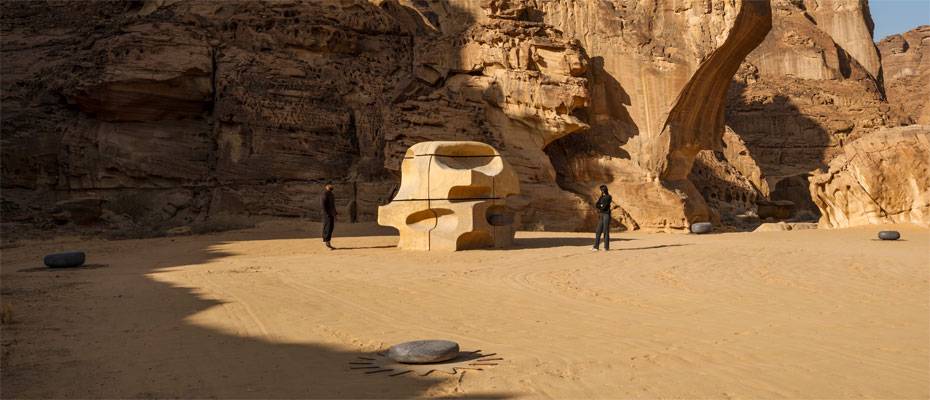Tourexpi
The
R+V Insurance Information Center warns that rules regarding collecting and
taking beach items vary widely from country to country – and in many regions,
it’s explicitly forbidden.
Germany:
Small Quantities Allowed – with Exceptions
Along
the North Sea and Baltic Sea coasts, collecting seashells, stones, or fossils
in small amounts for personal use is permitted – but only outside of nature
reserves and not on private beaches. Coastal protection structures, such as
stone embankments, are off-limits. If items have washed ashore, a value limit
of ten euros applies. “Beach finds generally belong to their original owner,”
explains Michael Rempel, a legal expert at R+V Insurance. “If the value exceeds
this limit, the find must be reported – otherwise, it may be considered
misappropriation. If no one claims it within six months, the item can be kept.”
Italy,
Croatia, Turkey: Strict Regulations
Many
holiday destinations have much stricter rules. In Italy, for example, removing
sand from beaches is prohibited – in Sardinia, even collecting small pebbles is
banned. In Croatia, taking fossil or archaeological finds can result in heavy
fines. Protected or rare seashells are also off-limits. Turkey is considered
especially strict: exporting natural or cultural assets can be prosecuted under
criminal law. The German Foreign Office explicitly advises against taking
stones or fossils as souvenirs from Turkey.
Regional
Regulations and High Penalties
Many
regions enforce their own specific rules. In Sardinia, any alteration to the
beach landscape is forbidden – even removing small amounts of sand or stones is
not allowed. Likewise, in Cyprus, parts of Greece, and on Spanish islands such
as Lanzarote or Fuerteventura, violations can lead to steep fines. Rempel
advises: “Anyone considering taking something should definitely check the local
regulations beforehand.”
Additional
Advice from the R+V Information Center:
·
Some beaches display signs indicating
prohibitions – these should always be respected.
·
In distant travel destinations like
Egypt, Costa Rica, or Kenya, collecting and exporting shells is often also
banned.
·
Especially protected species such as
starfish, sea urchins, corals, or large shells may not be collected or brought
into Germany.
·
Souvenirs or jewelry made from these
materials can also cause trouble: they may be confiscated by customs and result
in fines.
·
Certain shell species are subject to
import limits – in some cases, customs duties or prior declarations are
required.
Expert
Tip: If you want to bring home memories from your holiday, it’s better to
choose permitted souvenirs – and protect both the environment and your wallet.
Image
Credit: © AA
The most interesting news
 Read the News
Read the News

ITB Berlin Convention 2026: Diverse Programme Sets New Trends for the Future of Tourism
From 3 to 5 March 2026, the ITB Berlin Convention brings together leading international experts to discuss balance, innovation and responsibility in global tourism
 Read the News
Read the News

Thailand to Open the 2026 MotoGP World Championship at Buri Ram
Season opener at Chang International Circuit underscores Thailand’s role as a leading global sports tourism destination
 Read the News
Read the News

Ryanair to Cut Brussels Traffic as Belgium Raises Passenger Taxes
Airline plans to reduce capacity by more than two million seats by 2027, citing higher taxes at Charleroi and nationwide increases in passenger charges
 Read the News
Read the News

UN Tourism Launches Investment Guidelines Highlighting Bulgaria’s Tourism Potential
New publication positions Bulgaria as an attractive, transparent and competitive destination for tourism investment
 Read the News
Read the News

Desert X AlUla 2026 opens monumental land art exhibition in Saudi Arabia’s ancient oasis
The fourth edition of the international open-air biennial brings 11 leading artists to AlUla, transforming desert landscapes into a global platform for site-responsive art
 Read the News
Read the News

Savaya Group Unveils Zumana, a New Beachfront Destination on Bali’s Kuta Beach
New lifestyle venue set to reintroduce Kuta as a contemporary hospitality hotspot when it opens in 2026
 Read the News
Read the News

Celebrity Cruises introduces four European-inspired festivals on Celebrity Xcel
New onboard festivals transform Mediterranean culture into an immersive experience at The Bazaar, debuting during Celebrity Xcel’s first European season in summer 2026
 Read the News
Read the News

TUI Junior Academy launches new phase in Türkiye to protect coastlines and empower young leaders
The programme reaches 5,500 students and trains 350 teachers, combining environmental education with hands-on action along Türkiye’s Mediterranean coast
 Read the News
Read the News

Ryanair to add 300,000 seats in Germany for summer 2026 following tax relief
Airline announces 11 new routes after Germany moves to cut air traffic tax and freeze air navigation charges, reversing part of its planned capacity reductions
 Read the News
Read the News

Germany: GNTB highlights growth potential for coach tourism through international marketing
Stable demand, strong overseas markets and digital innovation position coach travel as a future-oriented segment of Destination Germany
 Read the News
Read the News

MGallery Collection enters 2026 with a wave of distinctive new openings
From the Maldives and Australia to France and Thailand, five upcoming hotels reflect MGallery’s focus on design-led hospitality rooted in a strong sense of place
 Read the News
Read the News

Agoda maps out the best places to travel across Asia in 2026
A new month-by-month guide links destinations, seasonal weather, and cultural festivals, helping travelers plan each trip around the moment a place comes alive
 Read the News
Read the News

Ice storm brings widespread disruption across western Germany
Freezing rain forces school closures, flight cancellations and rail restrictions as authorities warn of dangerous travel conditions
 Read the News
Read the News

Sanya Marathon spending surge highlights rise of the ‘racecation’
Strong tourism, hospitality and retail performance underscores how major sports events are reshaping travel demand
 Read the News
Read the News

Lufthansa Group Partners with Starlink to Introduce High-Speed Internet Across All Airlines
Fastest in-flight connectivity in all classes, free for status customers and Travel ID users
 Read the News
Read the News

Boeing Outpaces Airbus in Aircraft Orders in 2025
US manufacturer records 1,173 orders, reclaiming lead for the first time since 2018
 Read the News
Read the News

Trump International Golf Club, Wadi Safar unveiled as first landmark project in Riyadh
Dar Al Arkan, Dar Global and The Trump Organization advance luxury golf, hospitality and residential development in Diriyah
 Read the News
Read the News

EVA Air Named One of the World’s Safest Airlines for 2026
Taiwanese carrier ranks eighth globally and earns recognition for the 13th consecutive year
 Read the News
Read the News

Agoda Highlights Asia’s Top Snow Destinations for Winter 2026
From Japan to the Himalayas, winter escapes combine snowfall, culture and nature
 Read the News
Read the News

Delta to Add Boeing 787 Dreamliner to Its Widebody Fleet
Order for 30 aircraft supports fleet renewal, fuel efficiency and international growth
 Read the News
Read the News

Wyndham expands footprint in South Korea with first managed hotel
Opening in Gangwon and new projects in Seoul and Busan underscore confidence in a fast-rebounding market



